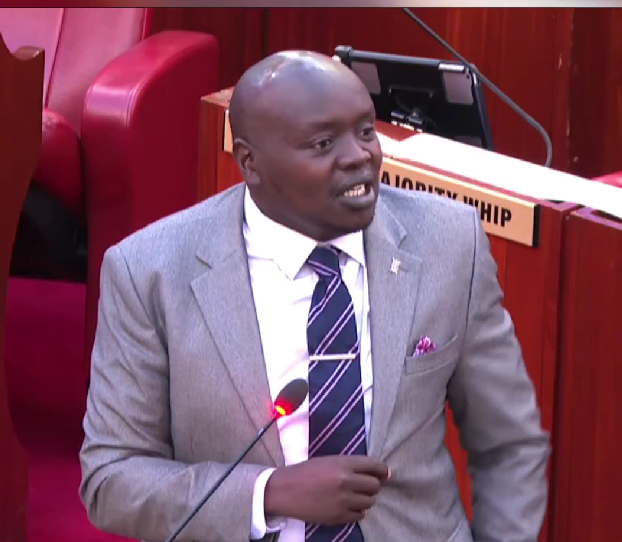
Nandi Senator Samson Cherargei now says the United Democratic Alliance (UDA) will go after other perceived rebels following the expulsion of nominated Senator Gloria Orwoba.
Orwoba was expelled from UDA over gross misconduct, but on Wednesday, May 21, 2025, she obtained a court order blocking the expulsion until her case is heard and determined.
President William Ruto’s party also accused her of violating its constitution and code of conduct.
The Senate seat was declared vacant by Speaker Amason Kingi on the same day, just moments before the court order was issued barring her removal.
Appearing on Citizen TV on Thursday, May 22, 2025, Cherargei warned that others defying the party's authority would face similar consequences.
Cherargei, a vocal supporter and senior member of UDA, insisted that Orwoba was punished for “promoting another party’s ideals.”
“Distinguish freedom of association from loyalty to a party. I am warning the likes of Senator Joe Nyutu and others who want to rebel within UDA. The party will come after you,” Cherargei declared.
“Gloria failed after she began championing the interests of another party. Anyone who wants to dissent against their sponsoring party should be very careful,” he added.
Nyutu, a close ally of former Deputy President Rigathi Gachagua, has emerged as a key critic of President Ruto and has openly vowed to vote against UDA in the 2027 General Election.
He was among UDA MPs and senators who attended the launch of Gachagua’s Democracy for Citizens Party (DCP) on May 15, 2025, in Nairobi.
However, elected leaders allied to Gachagua avoided wearing DCP attire, fearing possible legal repercussions.
The DCP launch, held in Nairobi’s Lavington suburb, was attended by at least 10 elected members of the National Assembly and Senate, along with several elected and nominated MCAs.
While many party supporters wore scarves and caps bearing DCP’s green, white, and brown colours, elected leaders were notably cautious, refraining from displaying any such political merchandise.
Their caution was informed by concerns that UDA—the party under which they were elected—might take disciplinary action against them.
Such action could destabilise Gachagua’s emerging political base and entangle the affected lawmakers in lengthy legal battles.
The Political Parties Act, 2011, outlines four main ways a person ceases to be a member of a political party: resignation, expulsion, "deeming," or natural attrition.
For Gachagua's allies elected under UDA, the law allows for expulsion through a formal disciplinary process.
In addition, UDA may pursue their removal from the party register under the "deeming" provision—if the Registrar of Political Parties determines that they have acted in a manner inconsistent with party membership, which could result in the loss of their parliamentary seats.
Kenyan law mandates that an elected MP must either belong to a political party or run as an independent candidate at the time of election.
It prohibits elected or nominated leaders, who hold office by virtue of their party affiliation, from switching parties mid-term without forfeiting their seats.
The Act also
stipulates that no person shall be a member of more than one political party at
any given time.












